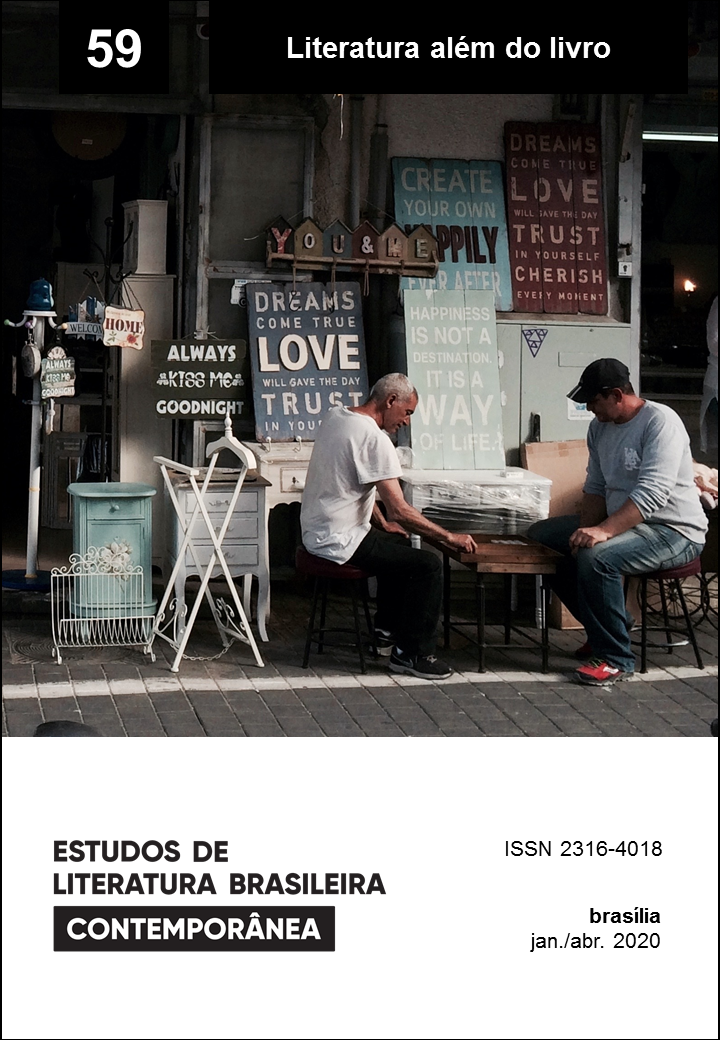La reconstrucción de O cortiço: estrategias de adaptación del romance de Aluísio Azevedo para un juego de mesa
DOI:
https://doi.org/10.1590/2316-40185912Palabras clave:
adaptación, juegos de mesa, Aluísio Azevedo, material didácticoResumen
Las formas de interacción con las narrativas literarias son muy variadas: libros, películas, cómics y juegos etc. En el siglo XXI, los métodos de adaptación ganan espacio, realizándose diversas acciones de transformar historias de un medio a otro, creando de este modo una serie de referencias que se van cruzando y ampliándose. En ese sentido, los juegos de mesa también permiten un diálogo intertextual, recreando y evocando textos clásicos desde otra perspectiva de interacción. Eso es lo que se lleva a cabo en el proyecto de extensión “Adamastor: Laboratório de Criação de Jogos Literários”, con carácter didáctico, para promover la lectura literaria y ampliar su disfrute más allá de un simple juego de preguntas y respuestas de comprensión y interpretación. A modo de ejemplo, se presenta el proceso de adaptación como juego de mesa de la novela naturalista O cortiço, de Aluísio Azevedo, basándose en conceptos de adaptación elaborados por Linda Hutcheon.
Descargas
Citas
BARTHES, Roland. (1988). Da obra ao texto. In: BARTHES, Roland. O rumor da língua. São Paulo: Brasiliense.
CANDIDO, Antonio (2004). O direito à literatura. In: CANDIDO, Antonio. Vários escritos. São Paulo: Duas Cidades. p. 169-191.
HUTCHEON, Linda (2011). Uma teoria da adaptação. 2 ed. Florianópolis: Editora UFSC.
MURRAY, Janet H. (2003). Hamlet no holodeck: o futuro da narrativa no ciberespaço. Traduzido por Elissa Khoury Daher e Marcelo Fernandez Cuzziol. São Paulo: Editora Unesp.
PERRONE-MOISÉS, Leila (2016). Mutações da literatura no século XXI. São Paulo: Companhia das Letras.
REIS, Carlos (2018). Estudos literários e ensino da literatura: o jardim dos caminhos que se cruzam. In: CARDOSO, Patrícia da Silva; BUENO, Luís (Orgs.). Nós e as palavras. Cotia: Ateliê Editoral, p. 33-48.
Descargas
Publicado
Cómo citar
Número
Sección
Licencia
Los autores que publican en esta revista concuerdan con los siguientes términos:
a) Los (los) autores (s) conservan los derechos de autor y conceden a la revista el derecho de primera publicación, siendo el trabajo simultáneamente licenciado bajo la Licencia Creative Commons de Atribución-No Comercial 4.0, lo que permite compartir el trabajo con reconocimiento de la autoría del trabajo y publicación inicial en esta revista.
b) Los autores (a) tienen autorización para asumir contratos adicionales por separado, para distribución no exclusiva de la versión del trabajo publicada en esta revista (por ejemplo, publicar en repositorio institucional o como capítulo de libro), con reconocimiento de autoría y reconocimiento publicación inicial en esta revista.
c) Los autores tienen permiso y se les anima a publicar y distribuir su trabajo en línea (por ejemplo, en repositorios institucionales o en su página personal) después del proceso editorial, ya que esto puede generar cambios productivos, así como aumentar el impacto y la citación del trabajo publicado (ver el efecto del acceso libre).
d) Los (as) autores (as) de los trabajos aprobados autorizan la revista a, después de la publicación, ceder su contenido para reproducción en indexadores de contenido, bibliotecas virtuales y similares.
e) Los (as) autores (as) asumen que los textos sometidos a la publicación son de su creación original, responsabilizándose enteramente por su contenido en caso de eventual impugnación por parte de terceros.


